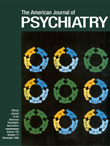Gabapentin Treatment of Alcohol Withdrawal
To the Editor: While benzodiazepines have been the primary treatment modality for alcohol withdrawal, a growing number of preclinical and clinical studies suggest that the anticonvulsants may represent desirable alternatives (1). We report on the use of the anticonvulsant gabapentin in the treatment of alcohol withdrawal in six patients.
Patients were initially assessed for need of emergent inpatient detoxification on the basis of evidence from an intensive history and physical examination. Patients were felt to be candidates for outpatient detoxification if they had no major medical illnesses, had a significant other to provide transportation, and agreed to be seen daily during the detoxification period. Consenting patients included four men and two women with an average age of 39 years. Three of the six had a history of prior medical detoxification with benzodiazepines, five of the six had experienced alcohol blackouts, and two had histories of alcohol withdrawal seizures. The severity of alcohol withdrawal symptoms was measured by the Clinical Institute Withdrawal for Alcohol Scale-Revised (2). On this scale, a score of 10 or higher indicates moderate withdrawal. The average initial score on the alcohol scale for our six patients was 17 (range: 10–27).
The gabapentin dosing schedule was 400 mg t.i.d. for 3 days, 400 mg b.i.d. for 1 day, and then 400 mg for 1 day. Scores on the alcohol withdrawal scale over four daily visits decreased from an average of 17 on day 1 to averages of 11, 2, and 0, respectively. Patients were started on a regimen of medication during the afternoon on day 1 and instructed to take two doses of medication that day. We feel that if three doses had been taken, the scores on the alcohol withdrawal scale on day 2 might have been lower. No adverse effects were noted, and the only complaint was initial sedation by one patient.
Gabapentin is an anticonvulsant approved by the Food and Drug Administration as an adjunct agent for the treatment of partial seizures with or without secondary generalization. In the field of psychiatry, it has recently generated interest as a potential treatment for behavioral dyscontrol and bipolar disorder (3). Gabapentin is not metabolized in humans, does not bind to plasma proteins or induce hepatic enzymes, and is eliminated by renal excretion as an unchanged drug (4).
Taken together, these data suggest that gabapentin may be a compound worth screening as a potential treatment for alcohol withdrawal. More conventional detoxification strategies may need consideration in patients at imminent risk of withdrawal seizures of delirium tremens. However, given gabapentin’s lack of drug-to-drug interactions, lack of cognitive impairment, lack of abuse potential, and renal excretion, the potential for use in a variety of detoxification settings is great.
1. Malcolm R, Ballenger JC, Sturgis ET, Anton R: Double-blind controlled trial comparing carbamazepine to oxazepam treatment of alcohol withdrawal. Am J Psychiatry 1989; 146:617–621Link, Google Scholar
2. Sullivan JT, Swift RM, Lewis DC: Benzodiazepine requirements during alcohol withdrawal syndrome: clinical implications of using standardized withdrawal scale. J Clin Psychopharmacol 1991; 11:291–295Crossref, Medline, Google Scholar
3. Stanton SP, Keck PE, McElroy SL: Treatment of acute mania with gabapentin (letter). Am J Psychiatry 1997; 154:287Medline, Google Scholar
4. Bruni J: Gabapentin. Can J Neurol Sci 1996; 23:S10–S12Google Scholar



